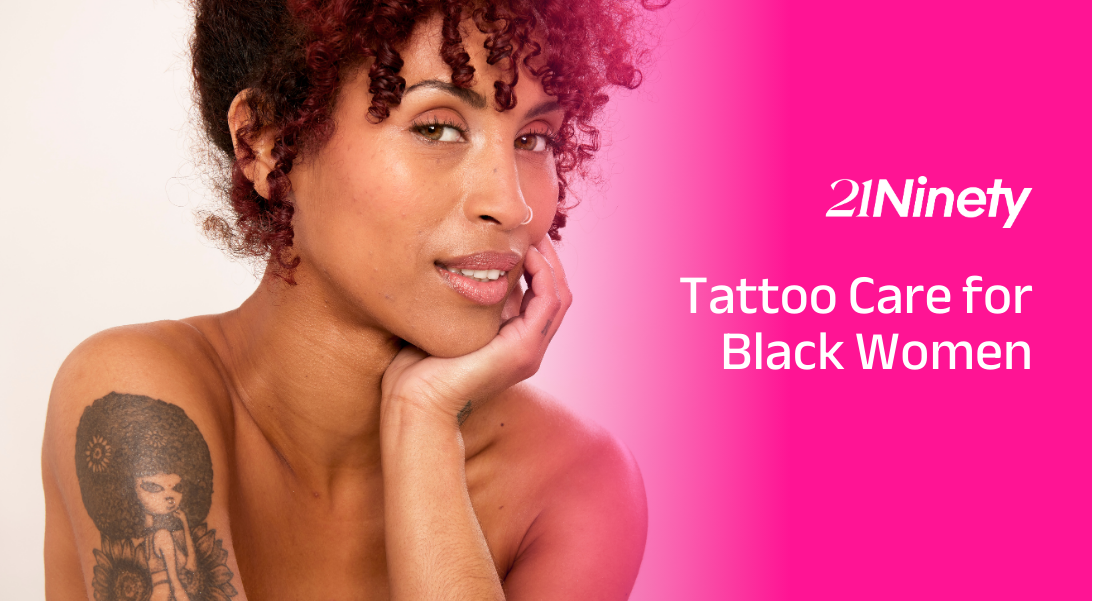Tattooing is a popular form of self-expression. For Black women, however, it requires particular care to maintain the health and vibrancy of their skin and tattoos. Dr. Hannah Kopelman, a dermatologist experienced with diverse skin tones, shared with 21Ninety some essential practices for Black women to follow.
Making the Right Tattoo Choices
Choosing the right tattoo artist and ink are some of the most important parts of tattoo care.
“It’s essential to select a tattoo artist with experience working on Black skin and using high-quality, hypoallergenic inks,” Kopelman explained. “This is crucial because certain pigments can cause allergic reactions or lead to hyperpigmentation, which is more common in darker skin tones.”
Pre-tattoo skin preparation is another crucial step. Hydration, as with most cases regarding skin, can make or break your outcome.
“Before getting a tattoo, make sure to properly moisturize and exfoliate the area,” advised Kopelman. “Well-hydrated skin helps the ink settle more evenly and reduces the risk of keloid formation, which is more prevalent in Black skin.”
Post Tattoo Care
The work isn’t finished after you’ve left the shop and are ready to show your new ink to your friends. Post-tattoo care is equally as important. Following the artist’s aftercare instructions meticulously is key to avoiding complications.
“This typically includes keeping the area clean, applying a thin layer of healing ointment, and avoiding direct sunlight, which can cause further skin irritation and discoloration,” Kopelman said.
Maintaining moisture in the tattooed area is vital.
“Keeping the tattooed area well-moisturized with a gentle, fragrance-free lotion is key,” says Kopelman. “This helps maintain the skin barrier, promotes even healing, and reduces the risk of dryness and flakiness that can affect the appearance of the tattoo.”
Sun protection is a critical aspect of a daily skincare routine. When it comes to tattoo aftercare, that theme stays consistent across the board.
“Once the tattoo is healed, it’s crucial to protect it from sun exposure,” Kopelman shared. “I recommend covering the tattoo with clothing or using a broad-spectrum sunscreen with at least SPF 30. Sun exposure can lead to fading and increase the risk of hyperpigmentation, which is a common concern for Black skin.”
The significance of these practices stems from the unique characteristics of Black skin.
“In my practice, I see that Black skin has a higher propensity for certain conditions, such as keloids and hyperpigmentation, which can be triggered by skin trauma like tattooing,” said Kopelman. “Proper moisturization and sun protection are crucial because Black skin tends to be more prone to dryness and UV-induced pigmentation changes.”
By following these guidelines, Black women can minimize risks and ensure their tattoos remain vibrant and their skin healthy. As Kopelman expressed, “It’s about creating a balance that honors the unique characteristics of their skin.”
